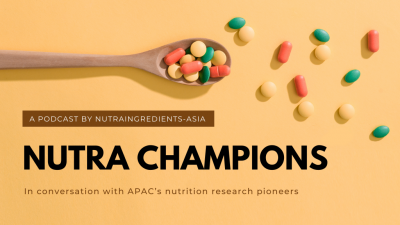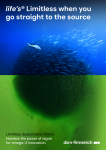Pandemic defence: Vitamin K and D could boost immunity against COVID-19 - Review

Writing in Journey of Inflammation Research, researchers from India, Malaysia, Thailand, Bangladesh, and Nigeria found that deficiency in one or more of these vitamins could worsen COVID-19 symptoms.
For example, reduced vitamin K level has been reported in COVID-19 patients and this has been associated with increased elastin degradation, especially to the lung tissue, in turn resulting in breathing difficulties.
COVID-19 patients in severe conditions are also associated with co-morbidities such as cardiovascular diseases, type II diabetes, or hypertension – conditions which are linked to reduced vitamin K levels.
The literature review, conducted between early June last year and mid-February this year, was based on studies found on Google Scholar, PubMed, Scopus, and China National Knowledge Infrastructure.
“Vitamin A, D, E, and K boost the body’s defence mechanism against COVID-19 infection and specifically prevent its complications such as cytokine storm and other inflammatory processes, leading to increased morbidity and mortality overemphasis.
“The fat-soluble vitamins are functional in various ways, including increasing the levels of cathelicidins and β-defensins, regulating RONS production, and influencing the acquired immune system by reducing immunoglobulin secretion by plasma cells and pro-inflammatory cytokines production to modulate T cells function,” the researchers said.
Vitamin D
Vitamin D has been cast in the spotlight since the pandemic as deficiency in the vitamin has been linked with poor clinical outcomes in COVID-19 patients.
An Indonesian retrospective cohort study by Biesalski HK et al found that male older patients with a pre-existing medical condition and those with lower vitamin D levels were associated with higher odds of mortality.
Involving 780 COVID-19 patients, the study found that when controlling independent variables during epidemiology such as age, sex, and comorbidity, a low vitamin D status is strongly associated with higher odds of COVID-19 mortality.
Based on observational studies, a dose of at least 40 ng/mL to 50 ng/mL (100–125 nmol/L) of vitamin D is recommended for individuals as prophylaxis.
The researchers added that vitamin D supplementation should be followed up with actual measurement of vitamin D levels in the body.
This is to ensure that the body’s vitamin D level is optimal and to prevent against overdosing, since further supplementation may not provide additional benefits.
Vitamin K
While the role of vitamin K in COVID-19 is not as well-known as vitamin D, there are studies showing that a reduced vitamin K level has been related to poor outcomes in COVID-19 patients.
Citing a study by Dofferhoff et al, the researchers said that the amount of desphospho-uncarboxylated matrix Gla protein (Dp-ucMGP), which was inversely related to vitamin K status, had increased tremendously in patients.
The data suggested a mechanism of pneumonia-induced vitamin K depletion leading to accelerated elastic fiber damage and thrombosis in severe COVID-19 cases.
Another finding by Tang et al found that there has been an elevated level of D-dimers in COVID-19 patients.
D-dimer is a protein fragment that is produced when a blood clot dissolves in the body and has been identified as a biomarker for disease severity and mortality in COVID-19 patients.
Previous studies found that ICU patients with elevated D-dimer protein levels also tend to suffer from vitamin K deficiency. This predisposes patients to a higher risk of haemorrhage and developing coagulopathy, and the latter has been observed in severe COVID-19 patients.
At the moment, researchers in The Netherlands are planning the first ever prospective trial to explore whether vitamin K supplementation could benefit COVID-19 patients.
Vitamin A and E
The researchers also looked at the uses of other fat-soluble vitamins such as vitamin A and E, however, there has been little clinical evidence in using them as a therapeutic option for COVID-19 patients.
Theoretically speaking, vitamin A could minimise COVID-19-induced adverse effects on the renin-angiotensin system which regulates blood volume and systemic vascular resistance. It could also potentially minimise medication-related adverse effects.
Vitamin E, on the other hand, could be administered with vitamin C to reduce oxidative stress in patients.
More detailed randomised double-blind trials would be needed to define the use of these supplements in preventing or reducing the severity of the COVID-19 infection, the researchers said.
Source: Journey of Inflammation Research
Fat-Soluble Vitamins and the Current Global Pandemic of COVID-19: Evidence-Based Efficacy from Literature Review
DOI: 10.2147/JIR.S307333
Authors: Samad, Nandeeta et al



















